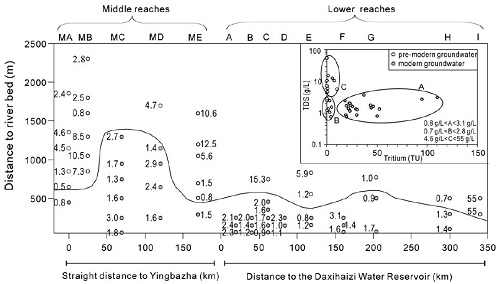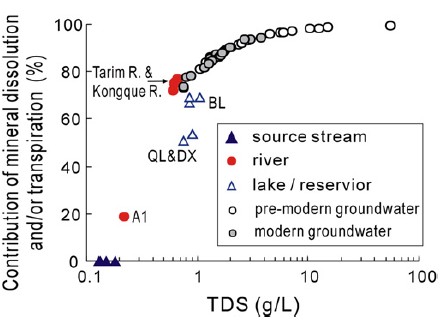Postdoctor HUANG Tianming and his teacher PANG Zhonghe provide a method for determining the salinisation mechanism by using the relationship between deuterium excess and salinity. It is a potential tool for determining the contribution of the evapoconcentration of a given water body.
The extremely arid Tarim River Basin in NW China is taken as an example to demonstrate deuterium excess and salinity evolution from the source stream to river water, lake/reservoir water and groundwater. The results show that mineral dissolution contributes most of the salinity (67–77%) for Boston Lake and the Kongque and Tarim rivers relative to the source stream. Mineral dissolution and/or transpiration contribute greater salinity (73–99.6%) to the groundwater recharged by the river water in the middle and lower reaches of the Tarim River.

Fig. 1. The contribution of evapoconcentration and mineral dissolution (and/or transpiration) to total salinity using the deuterium excess method. (Image by HUANG)

Fig. 2. TDS distribution (g/L) and the relationship between 3H content and TDS of groundwater along the Middle and Lower Tarim River. (Image by HUANG)

Fig. 3. Contribution of mineral dissolution and/or transpiration to total salinity for surface waters and groundwaters in the Tarim River Basin. (Image by HUANG)
Huang et al. The role of deuterium excess in determining the water salinisation mechanism: a case study of the arid Tarim River Basin, NW China. Applied Geochemistry. 2012, 27: 2382-2388 (Download Here)